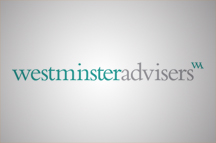 Although the final results are still trickling in, the direction of travel is clear: the Conservatives are on their way to being substantially the largest party, perhaps even to have an overall majority. For months, all the pollsters told us and anyone who would listen that the result was too tight to call, and that the bulk of the votes was more or less evenly split between Labour and the Tories.
Although the final results are still trickling in, the direction of travel is clear: the Conservatives are on their way to being substantially the largest party, perhaps even to have an overall majority. For months, all the pollsters told us and anyone who would listen that the result was too tight to call, and that the bulk of the votes was more or less evenly split between Labour and the Tories.
What happened? We don’t speak for pollsters, and no doubt they will be issuing their own mea culpas in the coming days and weeks. But every expert’s prediction was out, reminding us that politics is, at the best of times, an unpredictable game.
So what are the results as we know them, and what do they actually mean?
A win for the Conservatives in a host of marginal seats in England. Regardless of whether the party governs alone, a referendum on Britain’s membership of the European Union mid-way through this Parliament now seems very likely. If the Tories have a slim majority, it will empower their backbenchers and the 1922 Committee representing them; they know that any backbench rebellion could mean the failure of key legislation to pass. The Conservative Chief Whip will therefore play a crucial role in the coming government.
The widely-predicted rise of the SNP. Nicola Sturgeon’s party has come from having 6 seats under the last Parliament to becoming the third party of British politics. The result gives the SNP the legitimacy it needs to press for greater powers for Scotland, and potentially push for a new independence referendum after the Scottish Parliament elections in 2016. In Westminster, it expected to team up with Labour to act in opposition to further Tory-led reforms. Labour, the Tories and the Liberal Democrats each kept one seat in Scotland.

The loss of 26 Labour MPs, including high-profile figures such as Douglas Alexander (Labour’s election strategist and Shadow Foreign Secretary), Jim Murphy (Labour’s Scottish leader) and Ed Balls (tipped for the Chancellor’s job should Labour have won). Ed Miliband is widely expected to resign shortly following the poor result, and the direction of the Labour party under a new leader is still in question.
The terrible night for the Liberal Democrats, who also lost MPs including Vince Cable (formerly Secretary of State at BIS), Ed Davey (formerly Secretary of State at DECC) and Jo Swinson (formerly Consumer Minister at BIS). The party has also lost many seats in its previous stronghold in the South West. The electorate appears to have made them pay a high price for their period in coalition government. In his victory speech in the seat of Sheffield Hallam, Nick Clegg indicated that he would make an announcement on his leadership of the party later in the day. He is also widely predicted to resign as leader.
The loss of one UKIP MP, Mark Reckless. At the time of writing, Nigel Farage’s constituency in South Thanet was yet to declare, and it is too early to judge what the future holds for the party.












